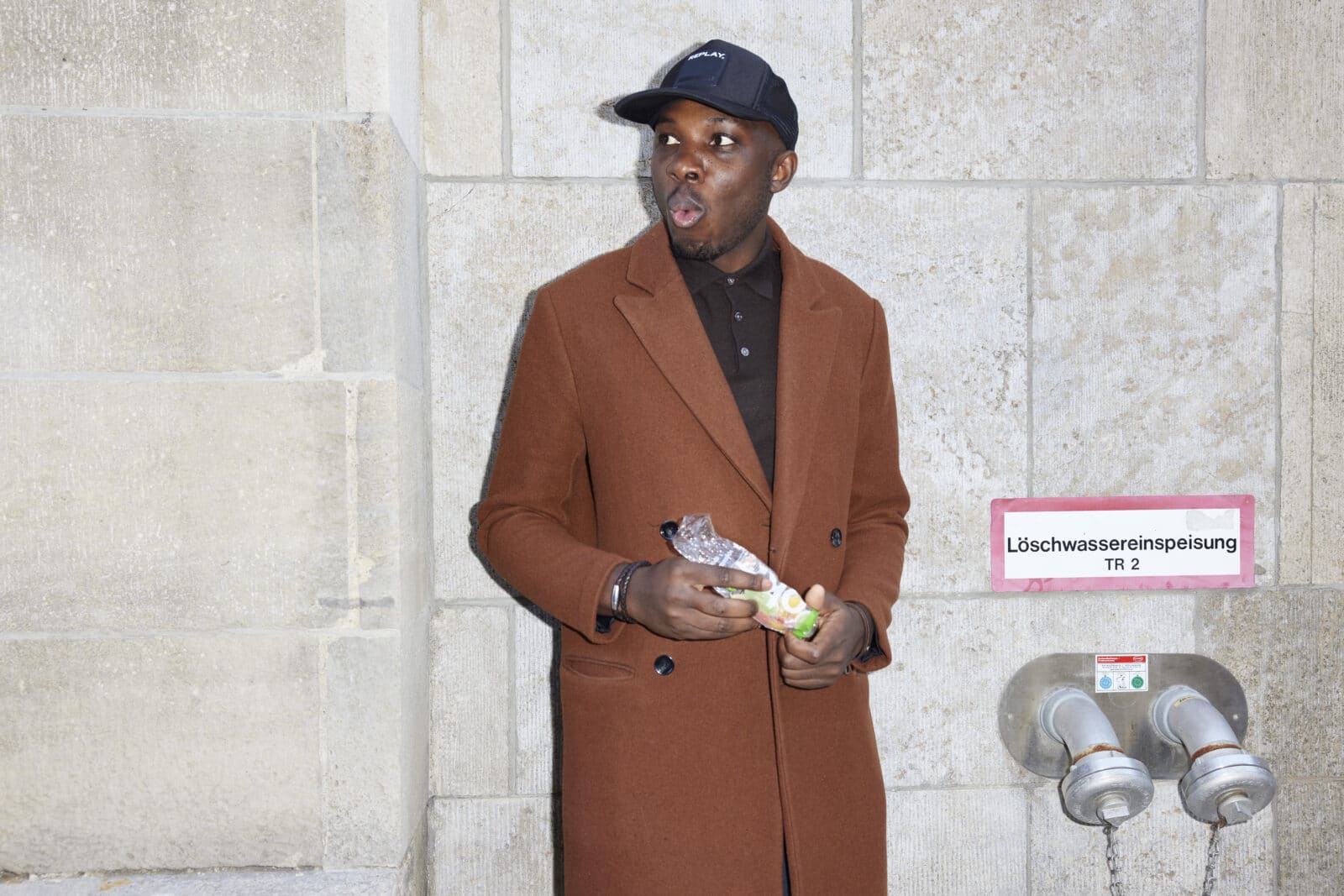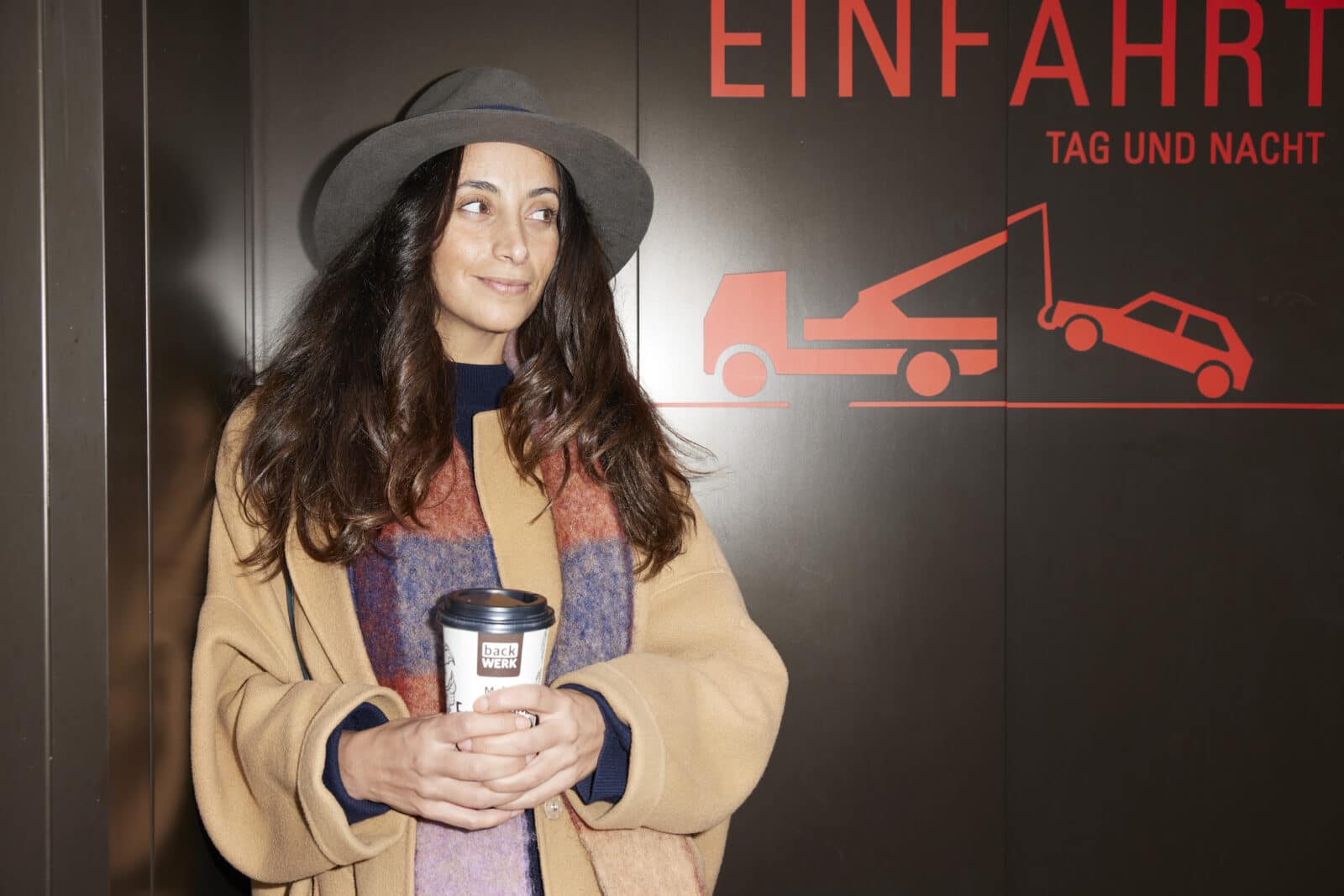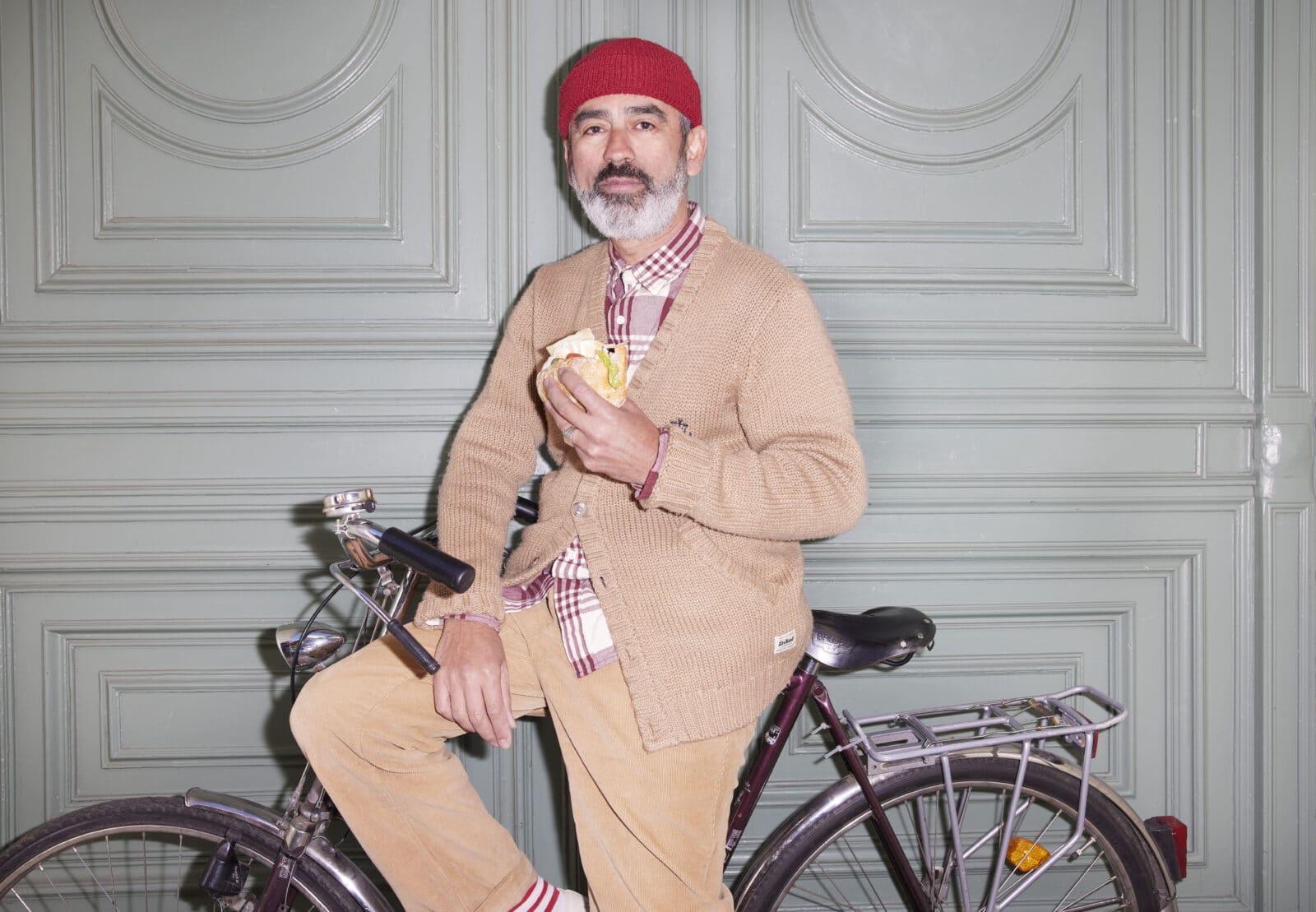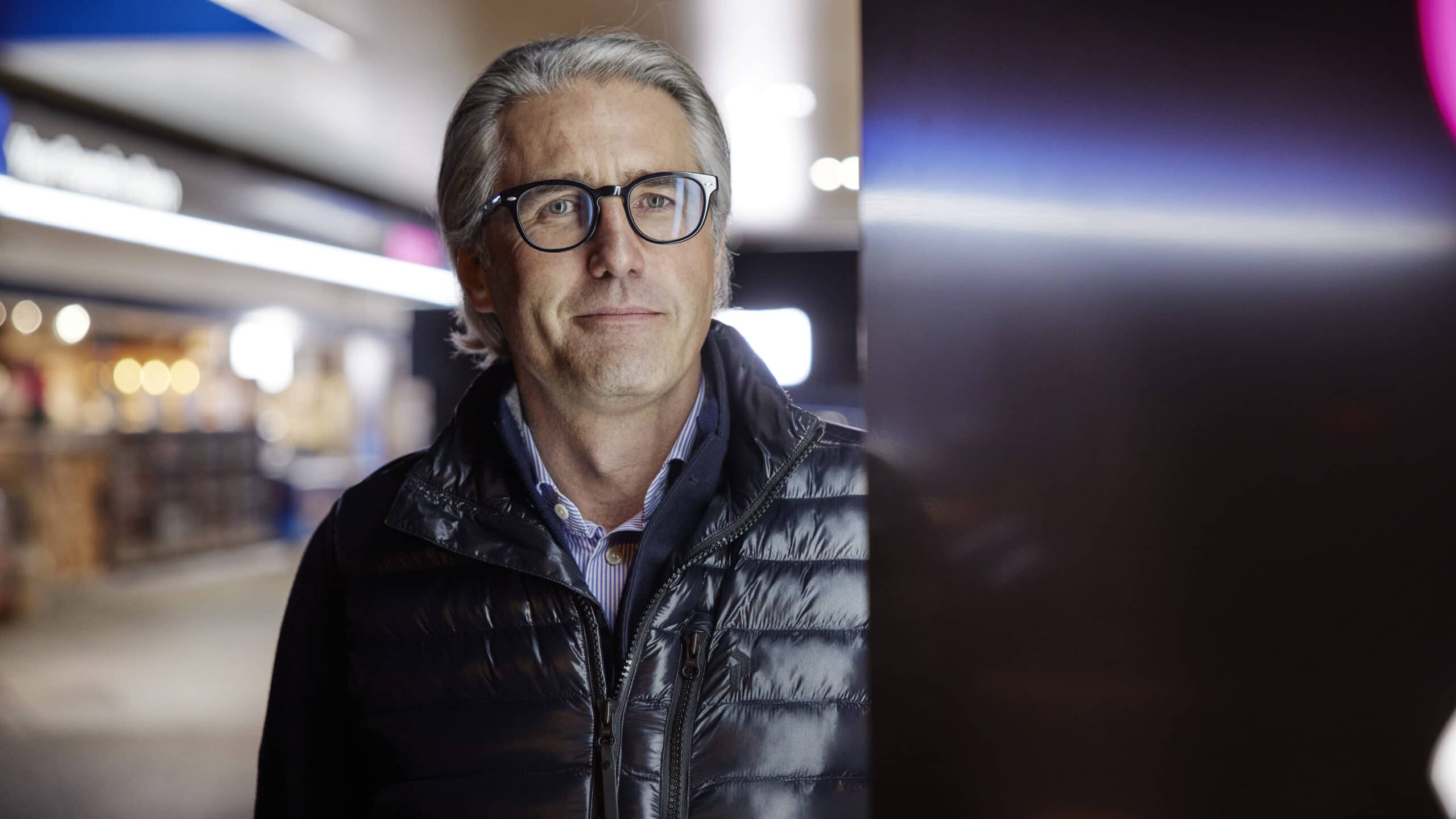Michael Mueller, CEO of Valora Group, saw clear signs of recovery in 2021. In the interview he explains, why Valora is perfectly equipped to make the most of the imminent upswing.
Michael Mueller, what was your experience of 2021?
For me, 2021 saw many promising moments: sales recovered more with each easing measure. The acquisition of Back-Factory in Germany, the expansion of BackWerk to the largest railway stations in the Netherlands and the doubling of the Swiss service station business. The above-average performance of the converted SBB sales outlets and the progress made in the 24/7 availability of our offering – partly due to our entry into the vending machine business. And finally, the outstanding performance of our B2B production business in the US. I was particularly impressed by the unparalleled commitment shown by the employees in our network, even after two years of the pandemic. All of this makes me optimistic.
So things are progressing?
Definitely. This is reflected in the intensity with which we are pressing ahead with the implementation of our foodvenience strategy as well as in the EBIT. In 2021, we achieved EBIT in excess of CHF 30 million – despite renewed restrictions in the fourth quarter due to the Omicron variant. That is more than twice as much as in the first year of the pandemic. We are therefore well in line with our guidance, which we communicated before Omicron.
Why was 2021 better than 2020?
Customer footfall returned with the progress of the vaccination programme and easing of restrictions. The situation relaxed noticeably from March, and the operating units had already returned to a performance close to pre-crisis levels by October. That allowed us to increase the EBIT margin to 2.4% in the second half of 2021. Not even the renewed restrictions from late autumn and the now almost complete SBB rental increase following the successful tendering process in 2019 held us back. We are convinced that our foodvenience strategy also has high value creation potential in the future.

Where was and is the greatest leverage effect?
Food sales were by far the hardest hit during the pandemic. However, we already saw initial signs of recovery in 2021. While external sales increased by +6% between March and December, food sales were up +18%. This, of course, had a positive impact on the gross profit margin. In addition, the Food Service division returned to a positive EBIT in 2021. This is where the operating leverage effect is greatest, as demand at public transport locations declined disproportionately due to the restrictions. It is all the more encouraging that we were able to significantly increase average purchases and absorption in 2021 compared to the pre-crisis years.
“With EBIT of over CHF 30 million, we are well in line with our guidance.”
How did the retail business fare?
The retail business was rock solid and almost always remained profitable throughout the crisis. This was due to the higher location diversification, the broad product portfolio and the resulting considerable mitigation effect on the reduction in sales combined with excellent cost management.
What about the B2B pretzel business?
Pretzel sales recovered completely in 2021. In the US, we actually achieved significant growth with Ditsch – not least due to the second production line that became operational in 2020. The US in particular offers further growth opportunities in an attractive market, so that we will continue to expand our capacities there in 2022. Ditsch also demonstrated its innovative strength in 2021 and was able to respond quickly to new B2B customer requests, including filled, individually packaged pretzels, thanks in part to the two production lines completed in Oranienbaum in 2019. This strengthened ties with DACH customers and enabled us to gain new customers internationally.
Is inflation not an issue there?
It is, the situation is unprecedented. Prices for raw materials such as flour, but also for packaging, energy, logistics and personnel costs are particularly in focus. We are managing this by further diversifying our risks and increasing our production efficiency even more. Unfortunately, price increases are also unavoidable. However, customers accept the situation in light of the overall market development.

How do you generally keep costs under control?
We established an extremely disciplined and flexible company-wide cost management system early on in the crisis and we are staying with it. Thanks to efficiency gains, we were able to keep the cost ratio stable in 2021 in spite of higher expenses related to inflation as well as investments in digital innovation and M&A projects.
To what extent did government COVID-19 contributions boost the result?
Besides short-time working allowances, Valora received additional governmental funds in 2021. However, the overall support was lower than in 2020. COVID-19-related rent concessions decreased especially in 2021.
Working from home seems to be here to stay. Will your business ever fully recover?
We assume that the number of people who will continue to work from home will have only a limited impact on customer frequency at public transport hubs. This is where we generated half of our external sales before the crisis. The locations remain attractive, as this gap is likely to be closed. More than half of passengers in our core markets use the train for reasons other than commuting to work. This travel activity is likely to return to normal quickly. Population growth and growing commuter numbers are also likely to have a strong counterbalancing effect. Furthermore, sustainability considerations and the future expansion of the service range are making public transport more significant. We are convinced that it will recover fully in the medium term. However, we no longer need 100% of the pre-crisis frequency to achieve the same level of profit. Thanks to improved costs and the pro rata expansion of our higher-margin food offering, we are more profitable at the same sales volume than we were just a few years ago. In addition, our customers are now buying more. The average total purchase sum has risen since 2019.
“We no longer need 100% of the pre-crisis frequency at public transport locations to achieve the same level of profit.”
At the same time, you are diversifying your location portfolio.
Exactly. We acquired other attractive locations away from commuter flows last year, both organically and through mergers and acquisitions, as part of the expansion of our network. The focus was on city centres and service stations.

Are city centres still attractive?
They will always be a hub for sustainable urban development over the long term. Once the COVID-19 situation has calmed, they will regain their appeal. In addition, the crisis is opening up new opportunities for good space. With the acquisition of the snack expert Back-Factory with around 80 stores in 2021, we have already managed to increase our presence in German inner-city locations.
“We have opened up further attractive locations at service stations and in city centres.”
What makes service stations special?
They are often located on major transport routes and in agglomerations – either on the way or very close to home. So it comes as no surprise that, according to a study by Fuhrer & Hotz, around 80% of customers in Switzerland shop there without refuelling. Accordingly, we have aligned the avec range still more closely to these needs – including a fresh, local offering for consumption at home. We are also all the happier to take over the operation of 39 Moveri shops from January 2022 – with potential for more shops. This will double our Swiss service station business. In 2022, the Moveri shops now under the avec brand stand to generate sales exceeding CHF 60 million.
What about service station shops in Germany?
We have been cultivating that market since 2021 with the k kiosk brand and have so far been able to occupy two locations. With BackWerk and Ditsch, we are also present at first service stations.
In 2021, you equipped a service station shop with 24/7 access. Is that also part of the expansion?
Yes, it is part of our drive to expand our customer reach. We are basically making our opening times comparable to online shopping and adding flexibility to the customer experience. We took the first steps in 2019 with the cashier-free avec box in Switzerland, which we are still testing in different sizes at various locations. These are fully autonomous self-checkout solutions. In 2021, we developed other self-checkout formats based on the relevant avec 24/7 app – such as hybrid solutions with staff during the day and autonomous access at night, as with the aforementioned service station. This will allow us to add locations and extend opening hours in places where we cannot justify deploying staff. We are now implementing this offer at many more locations.

What role do the new vending machines play?
We started using vending machines at the end of December 2021 to support our 24/7 model. The plan is to roll out around 300 k kiosk vending machines throughout Switzerland by the end of 2022. According to current planning, around 60% of the vending machines will be installed at existing avec and k kiosk locations. However, there is even more potential both in Switzerland and abroad.
“We are expanding our customer reach and adding convenience through 24/7shopping solutions.”
What further progress have you made in digitalisation?
We have noticeably increased our development capacities for digital solutions. Today we have a strong team with more than 30 FTEs. Similarly, we have significantly increased our expenditure in digitalization compared to 2019.
Which projects have you invested in?
In addition to autonomous purchasing solutions, we have also made progress in e-commerce. We have developed our own online tobacco shop as an additional sales channel at tabak.kkiosk.ch. Online tobacco purchases are becoming increasingly popular. This is already reflected on the platform. We also introduced the new Brezelkönig app to offer customers of the format a more attractive loyalty program.
“We were able to significantly increase the number of sales outlets with a strong food focus.”
You are pursuing a growth strategy with food. Where are you with that?
It is important that we were able to expand the proportion of sales outlets with a food focus in our network. We have ensured this with the following core initiatives: The conversions resulting from the SBB tender. The conversion of existing avec stores and the expansion of the avec network away from SBB locations, with Moveri for example. And also with the acquisition of Back-Factory and the new franchise partnership with HMSHost International, which brings us via BackWerk to the largest railway stations in the Netherlands.
What does that mean in figures?
If you add the stores to be integrated or converted by the end of 2022 to the number of sales outlets in 2021, we have increased the share of food service and convenience outlets – i.e. outlets with a strong food focus – by more than +20% since 2018. This not only enables us to achieve higher margins, network effects and synergies, but also to strengthen our brand presence – in particular avec and BackWerk. avec will be one of the largest convenience formats in Switzerland. With Back-Factory, which will be incorporated into BackWerk, we are also now one of the five largest catering companies in Germany measured by pre-crisis levels.

And how far along are you with the SBB conversions?
We are systematically pressing ahead with the conversion work and should be ready by around the end of 2022. To achieve this, we have expanded our team and processes. By the end of 2021, we had converted or opened a total of about half of the sales outlets. At k kiosk, we have completed 80% of the conversions, at avec we are at a quarter.
“Valora is identifying measures to decarbonise the entire value chain by 2050.”
Are the converted sales outlets performing well?
Food sales in the converted shops grew by almost +20% year-on-year from March to December 2021, while remaining more or less stable in the shops awaiting renovation. That percentage does not just comprise the now higher number of avec convenience stores, but also includes the higher food component in the new k kiosk concept. Drinks are also important in that regard.
In other words, the customer is satisfied?
Yes, we also see that in the positive results for k kiosk and avec in the customer survey conducted as part of the Swiss Convenience Retail Monitor 2021. The new avec concept launched in 2018 is proving particularly popular. The assessment has improved significantly compared to 2017. According to the study, the avec stores are now considered the industry benchmark.

How is the integration of Back-Factory going?
With Back-Factory, we have been able to substantially increase purchasing power at Food Service Germany and benefit from significant synergies. As part of the alignment of its product range, Back-Factory will be supplying cold beverages in accordance with the BackWerk standard from March 2022 onwards. We have already transferred some of our 40 or so own stores to the franchise model and are ahead of schedule with the integration of the administrative offices in Essen. We were also able to motivate key experts to accompany the change.
“We are consistently pursuing our growth strategy with food as the main driver.”
Do you also want to develop BackWerk itself?
The plan is for BackWerk to become a food service bakery also in Germany, offering an attractive, healthy snack range. To this end, we have designed pilot stores in Moers and Neuss based on our Dutch model. They progressed a lot better in 2021 than other BackWerk stores in comparable locations. According to surveys, the new concept is seen to be of a better quality. We will now scale it up with design and range adjustments. At the same time, we opened our Food Service Germany campus in Essen, where we train our operating partners to become successful business people.
What about your partner network during the crisis?
We were able to keep our agency and franchise partnerships stable throughout the pandemic. We are doing everything in our power to continue to provide our partners with the best possible protection and to support them financially to the best of our ability. Short-time working also allowed us to avoid extensive lay-offs among our own employees. Our motivated employees and our strong network are our basis for the imminent upswing.

Regarding ecological sustainability: many companies are committed to climate neutrality by 2050. Valora too?
Valora is currently identifying measures to decarbonise the entire value chain by 2050. As part of that, we aim to halve CO2 emissions in Scope 1 and 2 by 2025. We therefore want to convert the entire Group to 100% renewable electricity during 2022. This will already enable us to significantly reduce our Scope 2 emissions. We also became more sustainable in 2021: we reduced the weight of our own brand ok.– bottles and now use recycled PET. We offer discounts or upgrades across the board for the use of reusable cups. We sold 169,000 portions of food at a reduced price through Too Good To Go. We are also optimising our logistics and modernising cooling systems. These are all examples of what we are working towards.
“Valora has a strong balance sheet and is financially stable.”
What are your priorities in 2022?
We are systematically pursuing our growth strategy with food as the main driver. In doing so, we also want to profit from market consolidation and strengthen our core business in existing regions through acquisitions when suitable opportunities arise. We will do everything we can to ensure the integration of Back-Factory is successful. We have a proven track record with our previous acquisitions. We also want to complete the SBB conversions on time. Finally, we are continuing to invest in digital convenience solutions and sustainability. This also includes our transparent focus on ESG requirements.
“We are perfectly equipped to make the most of the upswing.”
Will you reach the financial targets communicated for 2022?
Valora has a strong balance sheet and remains financially stable, even in these turbulent times. Despite the rough start into the year due to the Omicron wave, we still expect EBIT of CHF 70 million (+/– ~10%) for 2022. The fast recovery experienced in 2021 is most likely to continue with the lifting of major restrictions. And we expect a rebound to pre-crisis levels during the second half of 2022. Our shareholders are also likely to be pleased with the recovery. We also stick to our longer-term outlook communicated for 2025. However, we expect to reach the operational targets 18 to 24 months later than originally planned due to the pandemic.
What are you looking forward to?
We are perfectly equipped to make the most of the imminent upswing. It will also provide renewed motivation, especially for the employees. This time has brought us at Valora together as a team that has shown what it can do. As the situation improves we will be able to do even more.
Photos and videos: Noë Flum.
Sharing made easy:
Draw the attention of friends and colleagues to this story!

